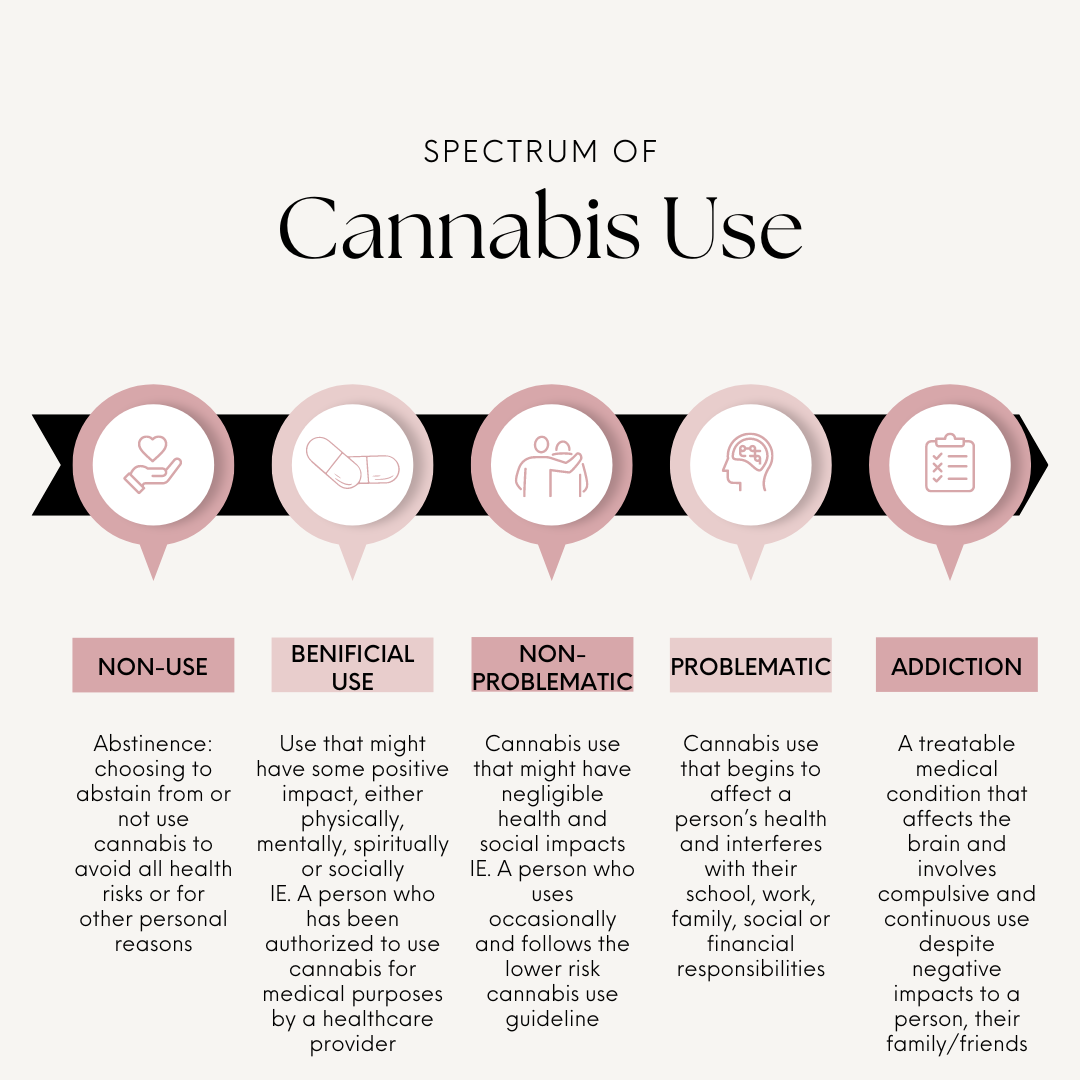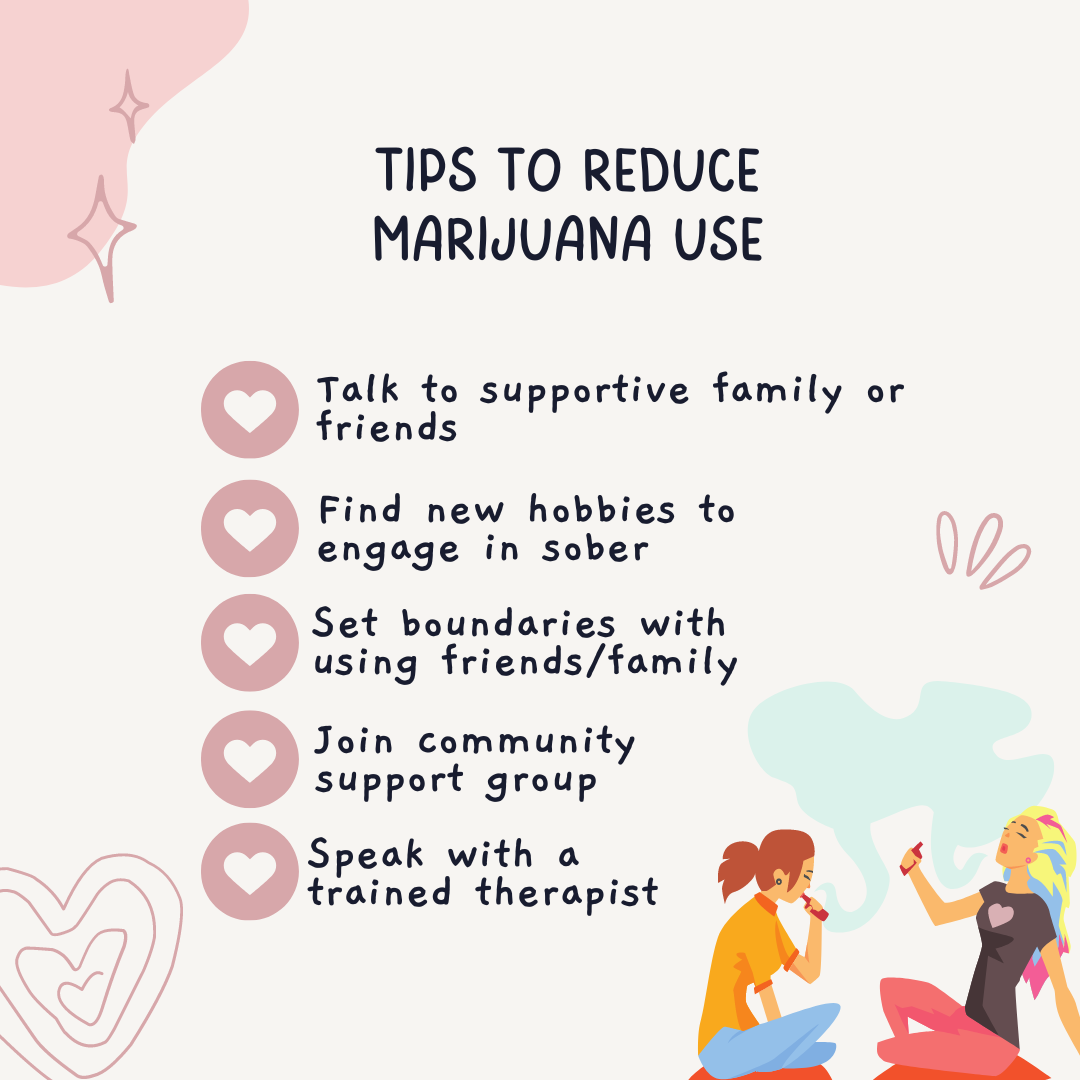California Sober?
“California Sober” is a term that references a lifestyle where individuals choose to abstain from all substance except marijuana. It is a form of partial sobriety that contrasts with abstinence-based approaches, as individuals may choose to continue to use marijuana in moderation. Because this is a socially created term, there is not a black-and-white definition, and the term takes on a different personal meaning for each individual who chooses to use it.
Despite the popularity of terms like “California Sober” and the use of harm reduction approaches to addiction, the lowest risk of using cannabis is not using at all.
Non-use or abstinence from marijuana has the lowest risk. However, there is some research regarding beneficial use of marijuana, when approved by a healthcare provider. CBD (cannabidiol) has been researched and found to effective in managing seizures, epilepsy, anxiety, insomnia and chronic pain (Grinspoon, 2024).
Currently, there are two synthetic THC substances that are approved by the FDA. It continues to be proven that "drugs containing cannabinoids may be helpful in treating certain rare forms of epilepsy; nausea and vomiting associated with cancer chemotherapy and loss of appetite and weight loss associated with HIV/AIDS, In addition, some evidence suggest modest benefits of cannabis or cannabinoids for chronic pain and multiple sclerosis symptoms". (Hopp et al., 2019). Further research is needed for other conditions and the benefits of cannabis use.
There are multiple things to consider if you are uncertain about the risks of marijuana or cannabis use. Start by taking a step back to honestly evaluate your own relationship with marijuana and ask yourself these questions.
What is the strength of the product I am using? The higher the strength the greater the risk.
Am I using daily or almost daily? The more often you are using, the greater the chances of risk.
Am I smoking? Smoking of any substance increases the risk of lung or breathing problems.
How old am I or how old was I when I started to use? Use before the age of 25, or full development of the brain, has a negative correlation to risk of health problems or addiction.
Do I have a personal history or family history of addiction or other mental health disorders? Am I using to self-medicate a mental health condition that would be better addressed via therapy?
Do I have a family or personal history of psychosis or schizophrenia?
If you are not ready for abstinence, that’s okay! There are still things you can do to lower the risk of harm related to your substance use. First, delay use until later in life. If you are a teenager or young adult, it may be in your best interest to delay the use of cannabis until your brain is fully developed and therefore will be less impacted by cannabis. If you are choosing to use in adulthood, choose products that are low strength, don’t use synthetic products that are not FDA approved, avoid smoking, create firm personal boundaries to limit your use, avoid driving or operating machinery when under the influence and avoid mixing cannabis with other substances.
No matter what choices are made, we cannot completely mitigate the risks that come with using any type of substance. Building awareness of the health impacts from marijuana is important. We want to cultivate an open and honest relationship with ourselves and our decisions.
If you are making the decision to continue to moderate your cannabis use or to engage in being "California sober", recognize the statistics and risk that may come with that decision. Approximately 10% of people who use cannabis will develop an addiction to cannabis. The risk of cannabis is believed to be increasing due to the increasing potency and synthetic products that come with alternative risks.
If you are starting to evaluate your use of marijuana or relationship with marijuana and have decided that this is no longer conducive to your future goals, there are things you can do to start to take control. Set boundaries, find new hobbies, build a supportive community or engage in counseling to better increase your insight in your use, learn skills and have a supportive person to join you on your journey of sobriety (whatever stage of sobriety you may be at). If you are located in the state of South Dakota and are ready to start counseling for marijuana use or to examine your relationship with marijuana, click HERE. You will receive an email in 1-2 business days with information on how to access the online client portal and schedule your first session.
Sources:





